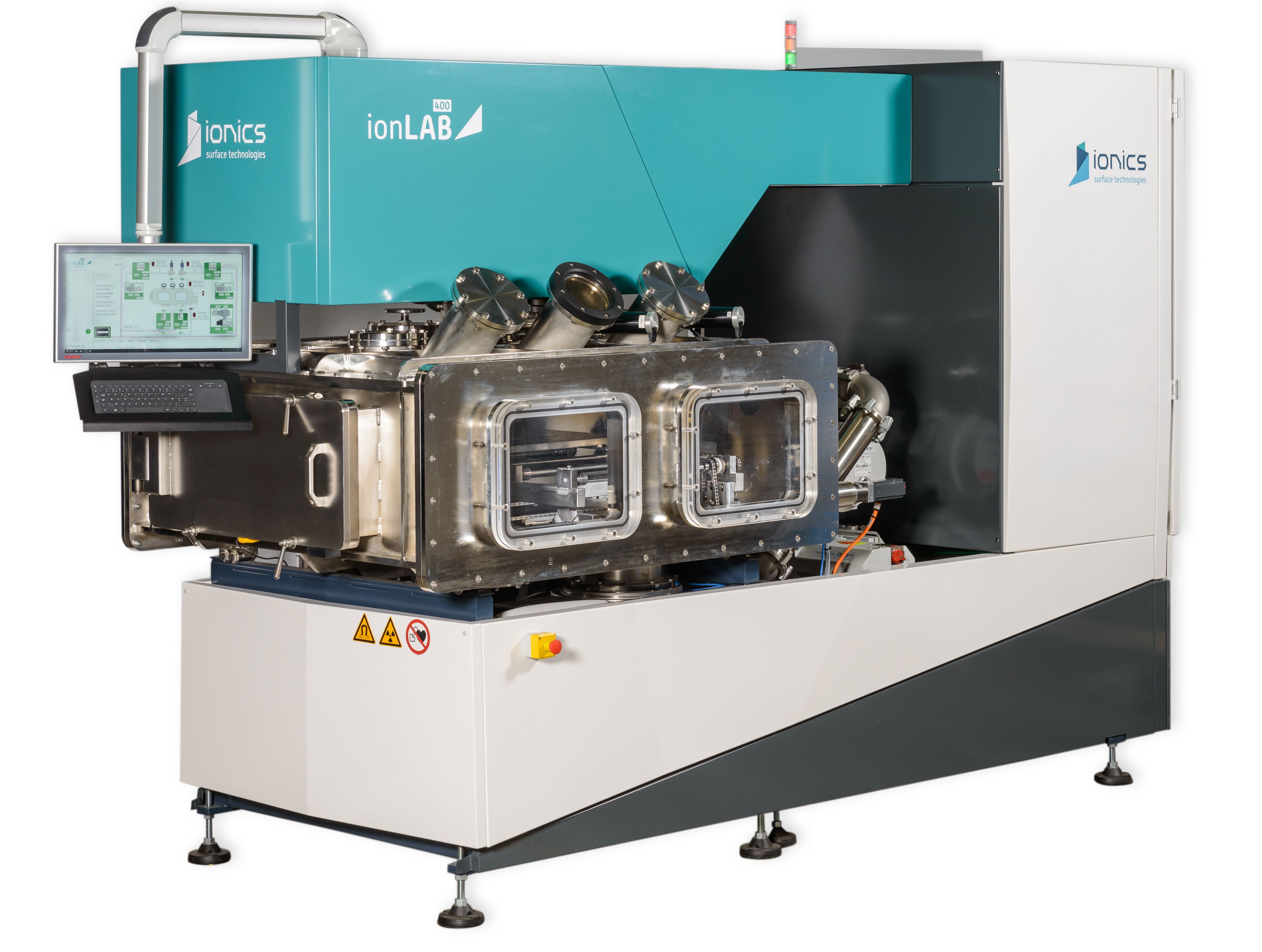A micro-accelerator of particles generates a highly energetic ion beam able to penetrate the surface of materials and to enhance their properties without any coating. The penetration depth might reach up to 10 microns and the treatment effects are still measurable until 1mm. Depending the nature of the implanted ions and the process parameters, you may obtain chemical modification, doping effect, surface amorphisation, re-alloying or nano-structuring. The part temperature never exceeds 80°C: a cold metallurgy. The technology might be combined with other low-pressure technologies like PVD and PECVD processes to obtain even more breakthrough properties.
The design of the ion micro accelerator is specially though for industrial scale treatments avoiding the well-known hindrances and issues of such processes. Efficiency, reliability, simplicity and flexibility were the keywords during the development. The system is mainly composed of the particles micro-accelerator and of a vacuum chamber (10-3 mbar). The overall design of industrial line is adapted to your application by our engineers: continuous or batch processes; additional plasma sources; scanning beams for large surface treatments; adapted for flat surfaces, loose parts or 3D complex shapes; and so on.
Below the first industrial line for flat substrate treatment and next to the ionLABTM R&D equipment. New industrial facilities for 3D parts, loose parts and coils treatment are planned for 2019 thanks to the WalIbeam project and the support of the Walloon region and Europe.
 Among others surface properties, we may mention increased resistance and hardness, lower friction coefficient, higher transparency, enhanced corrosion resistance, electrical conductivity. Treated materials are metals, ceramics, polymers and elastomers, glass, saphire, cermets and so on.
Among others surface properties, we may mention increased resistance and hardness, lower friction coefficient, higher transparency, enhanced corrosion resistance, electrical conductivity. Treated materials are metals, ceramics, polymers and elastomers, glass, saphire, cermets and so on.